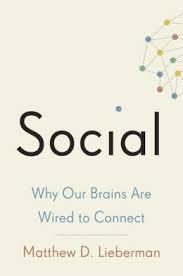You need social connection
Tylenol makes both kinds of pain go away: your headache, and your heartache.
So emotional pain is as real as physical pain.
What follows, then, is an understanding of social connection—exclusion of which creates pain—as “real”, as real as physical pain. In fact, a growing body of research shows that the need to connect socially with others is as basic as our need for food, water and shelter, writes UCLA professor Matthew Lieberman in his first book, “Social: Why Our Brains Are Wired to Connect,” which cites more than 1,000 studies on the needs of humans.
“Being socially connected is our brain’s lifelong passion,” says Lieberman, a professor of psychology in the UCLA College of Letters and Science and a professor of psychiatry and biobehavioral science at UCLA’s Semel Institute for Neuroscience and Human Behavior. “It’s been baked into our operating system for tens of millions of years.”
Recognizing just how important socialization is to human development will have dramatic impact on how we organize our institutions: schools, sports teams, the military, health care institutions, government. As an example, Lieberman delves into education: U.S. students’ interest in school tends to wane when they reach the seventh and eighth grades—an age when humans become extremely social.
“Eighth graders’ brains want to understand the social world and the minds of other people. We can tap into what middle school students are biologically predisposed to learn, and we can do this to improve instruction in history and English, and even math and science.” Schools could take that a step further by creating social connection in teaching, like having older students tutor younger ones.
Likewise, business leaders might benefit from understanding people’s social motivations: a study by Lieberman demonstrated that people were usually willing to return money that had been given to them if it meant that others would write kind words about them. That’s a powerful motivator in the workplace.
Check out the video below for more from Matthew Leiberman in his 2012 TED talk.

